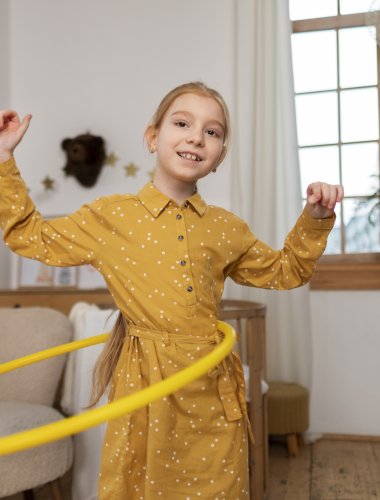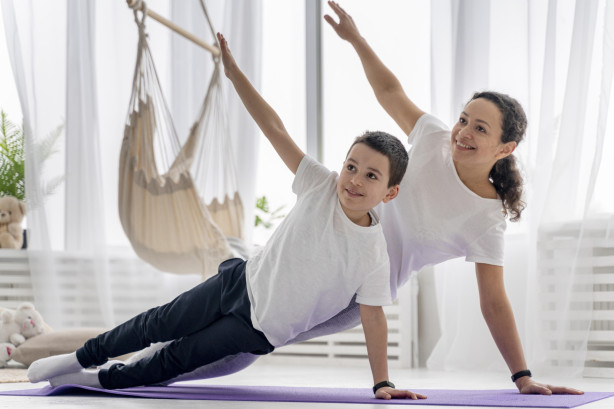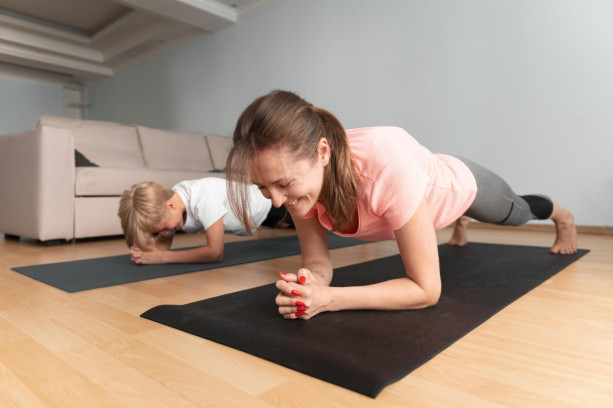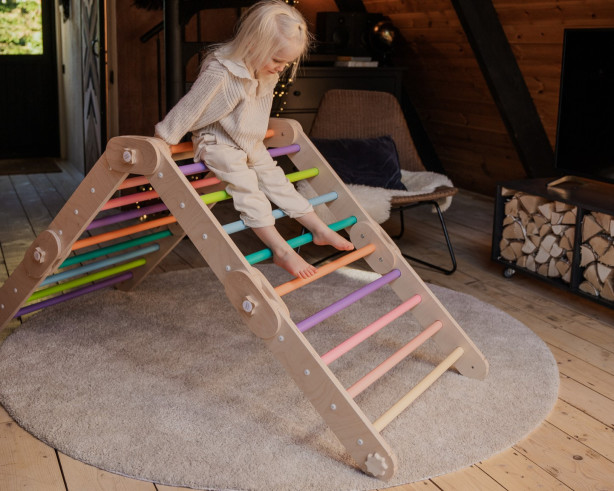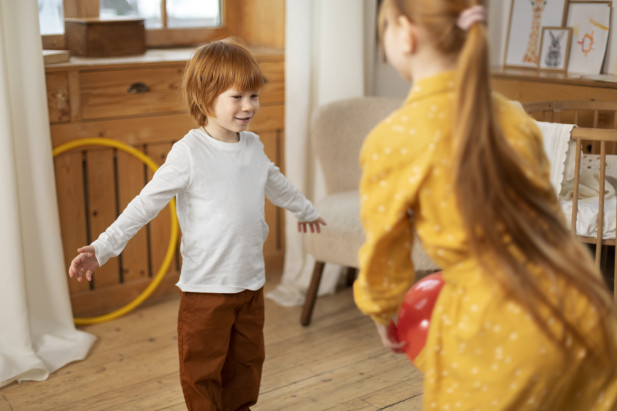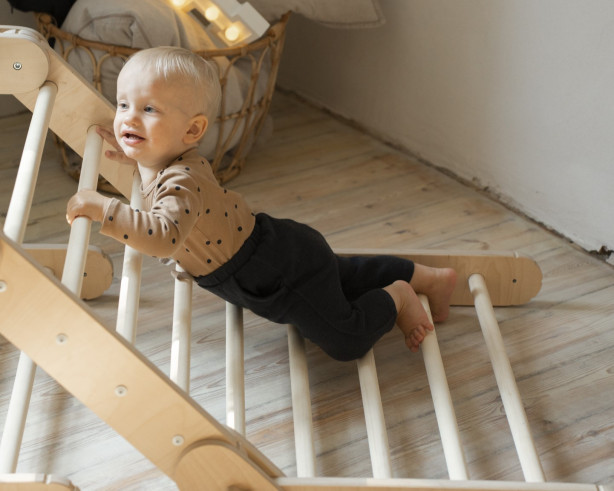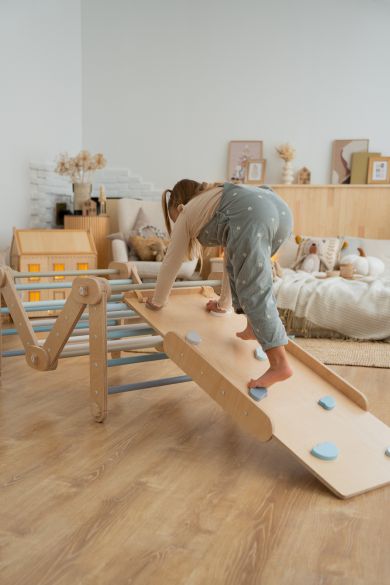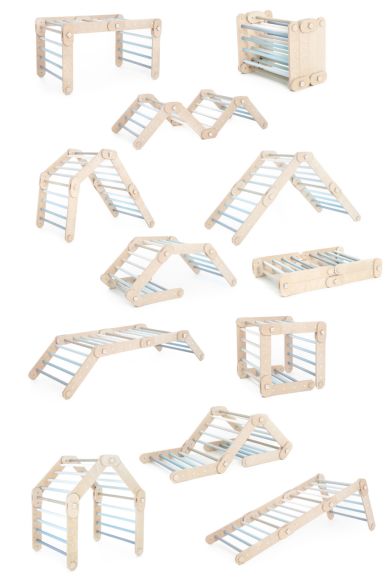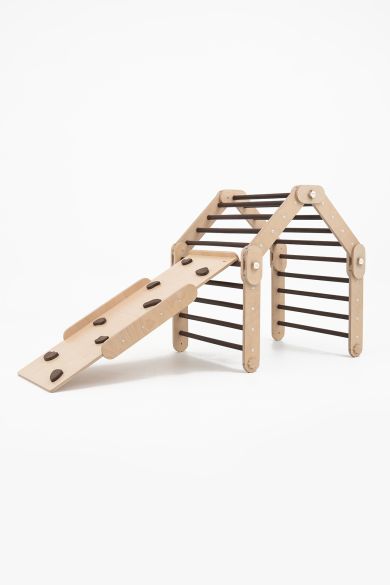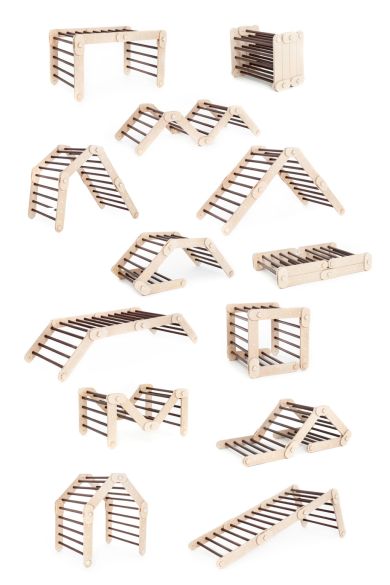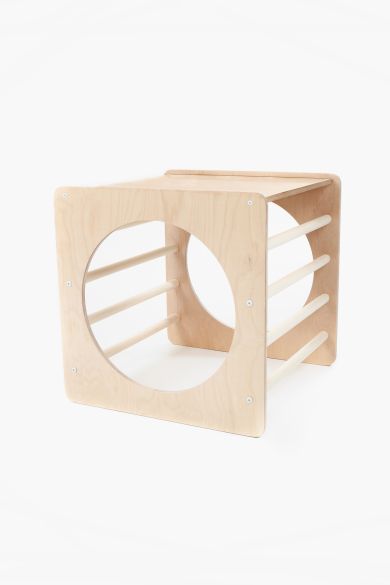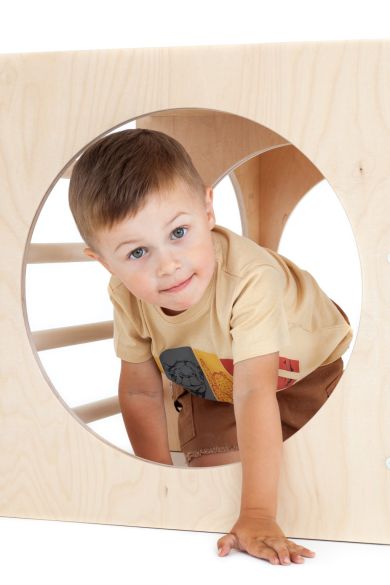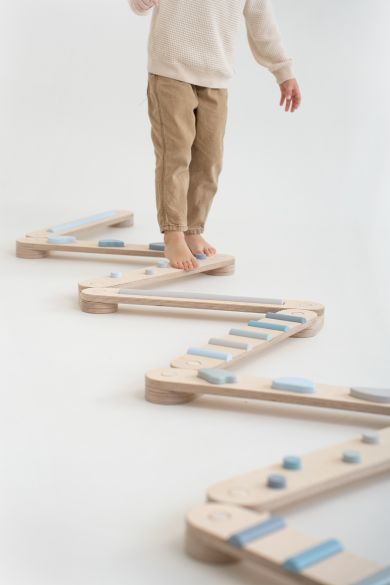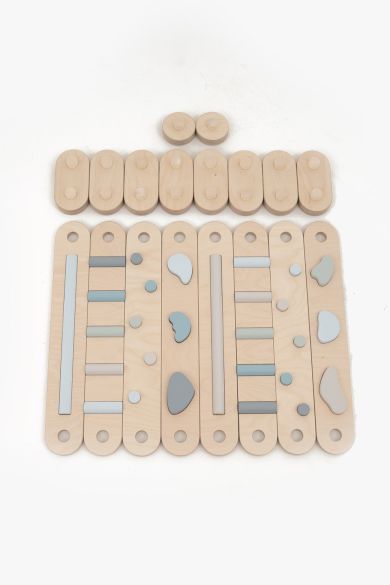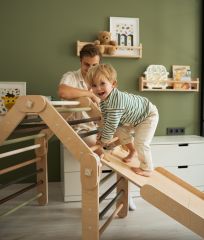Active play doesn’t require gym sessions or outdoor sports; with a little creativity, your home can become a hub of movement and joy. Here are practical, age-appropriate ideas to inspire active play and overcome kids’ passivity.
Turn Movement into a Game
Games are a natural way to make physical activity fun. Here are some creative ideas:
- Obstacle Courses: Use furniture, pillows, and toys to create an indoor obstacle course. Kids can climb, crawl, and jump through different stations.
- Treasure Hunts: Hide small items around the house and provide clues that require jumping, balancing, or running to uncover the treasures.
- Dice of Fun: Make a die with physical activities on each side, such as “10 jumping jacks” or “3 spins.” Roll it to create surprise challenges.
- Tidy-Up Races: Turn cleaning into a high-energy competition by timing how quickly your child can put toys away or organize their space.
Schedule “Move and Groove” Time
Building movement into your daily routine helps establish healthy habits. Dedicate specific times of the day to active play:
- Morning Stretches: Start the day with simple stretches or yoga poses like downward dog or cobra.
- Dance Parties: Play favorite songs and let everyone in the family dance and have fun together.
- Movement Challenges: Try friendly competitions, like who can jump the highest or hold a plank the longest.
Invest in Active Toys
Active toys encourage movement and skill-building through play. Consider:
- Climbing Triangles and Cubes: These structures promote climbing, crawling, and imaginative play.
- Balance Beams and Boards: Help improve coordination, balance, and core strength.
- Mini-Trampolines or Bouncing Balls: Great for burning off energy in small spaces.
- Tunnels and Tents: Encourage crawling and role-playing adventures.
Use Technology Wisely
Screens can be a tool for active play when used thoughtfully. Here’s how:
- Interactive Video Games: Games like Just Dance or Ring Fit Adventure combine entertainment with physical activity.
- Online Classes: Explore kid-friendly fitness or dance tutorials on platforms like YouTube.
- Activity Trackers: Simple pedometers or step trackers can motivate kids to meet daily movement goals.
Tailor Activities to Your Child’s Age
Different age groups benefit from tailored activities:
- Toddlers: Focus on climbers, crawling tunnels, or animal walks (e.g., hopping like a bunny or stomping like a dinosaur).
- Preschoolers: Introduce balance beams, treasure hunts, or yoga with simple poses.
- Older Kids: Challenge them with obstacle courses, gymnastics rings, or competitive movement games.
Celebrate Progress
Recognizing effort encourages kids to stay active. Create a fun activity chart to track achievements, such as completing an obstacle course or trying a new skill. Reward milestones with non-material treats like extra playtime or a family movie night.
Final Thoughts
Encouraging active play at home doesn’t require expensive equipment or elaborate plans. By using creativity and consistency, you can transform everyday moments into opportunities for movement. Start small and explore activities that suit your child’s interests and age. Not only will you keep them healthy and happy, but you’ll also help instill a love for physical activity that will benefit them for a lifetime.
